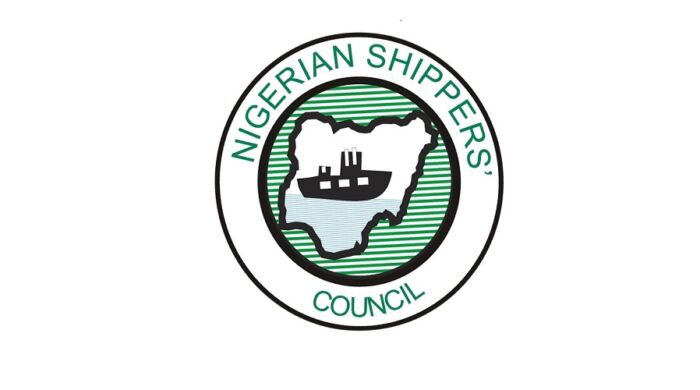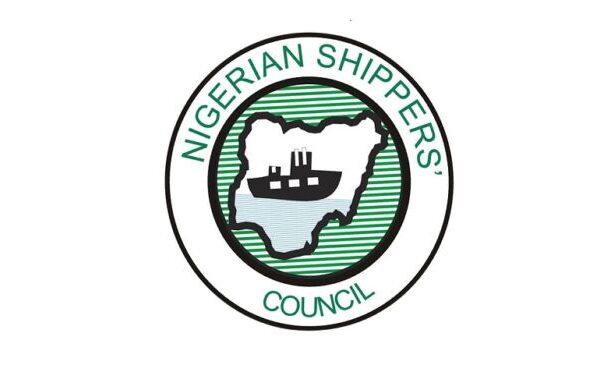- Government Organisation
- Lagos, Nigeria

Nigerian Shippers’ Council (NSC)
About the Nigerian Shippers’ Council (NSC)
The Nigerian Shippers’ Council (NSC) was established by Decree 13 of 1978 now Nigerian Shippers’ Council Act Cap. N133, Laws of the Federation of Nigeria 2004. This was based on the 1965 United Nations Conference on Trade and Development (UNCTAD)’s recommendation, urging developing countries to create National Shippers’ Councils as public sector authorities to act as a countervailing force against the exploitative excesses of foreign ship owners and other providers of shipping and related services.
Historical Background of the Nigerian Shippers’ Council (NSC)
The Nigerian Shippers’ Council (NSC) was established in 1978 by the Federal Government of Nigeria to address critical challenges faced by Nigerian shippers (importers and exporters) in the global shipping industry. Its creation was part of the government’s efforts to regulate and modernize the maritime sector, with a focus on protecting the interests of Nigerian businesses engaged in international trade.
Before the establishment of the NSC, the Nigerian shipping industry struggled with numerous obstacles, including excessively high freight charges, limited shipping infrastructure, inefficient port operations, and unfair practices by international shipping companies that placed Nigerian traders at a disadvantage. The absence of a robust regulatory framework made it difficult for local shippers to compete effectively in the global market.
Recognizing these challenges, the government enacted the Shippers’ Council Act of 1978 (now codified as the Nigerian Shippers’ Council Act, Cap N86, Laws of the Federation of Nigeria, 2004), which empowered the NSC to serve as the voice and advocate of Nigerian shippers. The Council’s mandate was to regulate shipping practices, address grievances, and ensure fair treatment for Nigerian businesses in maritime trade.
From its early days, the NSC tackled critical issues such as high freight rates, inadequate port facilities, and inefficiencies in shipping operations. It also played an advisory role in shaping national shipping policies and ensuring that Nigerian traders had access to affordable and competitive shipping services. Over the decades, the Council’s responsibilities expanded to include the resolution of shipping disputes, promotion of port reforms, and facilitation of trade through streamlined logistics.
In recent years, the NSC has been instrumental in advocating for trade facilitation reforms, modernizing Nigeria’s shipping and logistics infrastructure, and enhancing the competitiveness of the maritime sector. It has also worked to promote the adoption of international shipping standards and conventions, ensuring that Nigeria aligns with global best practices.
Today, the Nigerian Shippers’ Council serves as the regulatory authority for the shipping industry in Nigeria, working in collaboration with other stakeholders to create a more transparent, efficient, and competitive maritime environment. Its historical evolution reflects its commitment to driving economic growth, supporting Nigerian shippers, and enhancing Nigeria’s standing in global trade.
This rich legacy positions the NSC as a cornerstone of Nigeria’s maritime industry and an essential driver of trade development.
Mandates of the Commission
- Regulating and promoting fair shipping practices in Nigeria.
- Protecting the interests of Nigerian shippers (importers and exporters).
- Promoting the development and efficiency of the Nigerian shipping and logistics sectors.
- Overseeing shipping-related disputes and resolving conflicts between stakeholders in the shipping industry.
- Ensuring the provision of adequate and efficient shipping services.
- Advocating for policies that enhance the competitiveness of Nigerian shipping and trade.
- Facilitating the implementation of international shipping conventions and agreements.
- Promoting the development of Nigeria’s transport and logistics infrastructure.
- Providing advice and recommendations on shipping and trade-related matters to the government.
- Promoting the training and capacity-building of stakeholders in the shipping and logistics sectors.
Mission and Vision Statement of the Commission
Vision Statement
To be the foremost national shipping regulatory body that promotes and enhances the efficient and sustainable development of Nigeria’s shipping and logistics sectors, contributing to the nation’s economic growth and global competitiveness.
Mission Statement
To regulate and promote fair and efficient shipping practices, protect the interests of Nigerian shippers, ensure the provision of quality logistics services, and contribute to the development of an efficient, competitive, and cost-effective transport system in Nigeria.
The Nigerian Shippers’ Council is tasked with overseeing the shipping sector and ensuring that the interests of Nigerian importers and exporters are well-protected in the global shipping industry. Its vision and mission reflect its role in facilitating trade, improving logistics infrastructure, and contributing to Nigeria’s economic development.
Functions of the Commission
- Provide guidelines on tariff setting in order to guide against arbitrariness;
- Monitor and enforce standards of service delivery to ensure availability, accessibility, affordability, stability, predictability and adequacy of services;
- Encourage competition and guard against the abuse of monopoly and dominant market positions;
- Perform mediatory role among stakeholders;
- Establish accessible and modern dispute resolution mechanism
- Regulate market entry and exit;
- Promote efficiency in the provision of port services;
- Minimize high cost of doing business and prevent its inflationary effect on the Nigerian economy;
- Encourage private sector investment in the ports;
- Monitor and ensure compliance by all parties with the provisions of the Port Concession Agreements.
Organizational Structure of the Commission
The organizational structure of the Nigerian Shippers’ Council (NSC) is designed to ensure the effective execution of its mandates, which involve regulating and promoting fair shipping practices and protecting the interests of Nigerian shippers. At the top of the structure is the Governing Council, which provides oversight and strategic direction for the agency. The Governing Council is typically composed of key stakeholders from the maritime and shipping sectors, including senior government officials, industry experts, and representatives of various shipping organizations.
The day-to-day operations of the NSC are managed by the Executive Secretary/CEO, who is appointed by the federal government. The Executive Secretary is responsible for overseeing the implementation of the Council’s policies, managing its administrative functions, and ensuring that its objectives are met. The Executive Secretary reports to the Governing Council and is supported by a team of senior officials in charge of various departments within the agency.
The NSC has several divisions and departments that handle specific aspects of its work. These include departments for policy development, trade facilitation, dispute resolution, legal services, and maritime research. The agency also has a public relations unit, an information technology department, and a logistics management division, each focused on different areas that support the overall functioning of the Council.
Each department is led by a director who oversees its operations, ensuring that all tasks and projects are carried out efficiently. These directors collaborate with other departments and external stakeholders to promote a more effective shipping and logistics sector in Nigeria.
The organizational structure of the NSC is designed to foster coordination between the various components of the shipping industry, government entities, and other stakeholders. The agency’s leadership is committed to advancing the development of Nigeria’s maritime sector, improving shipping services, and protecting the interests of Nigerian shippers both locally and internationally.
Summary
Initially focused on protecting shippers’ rights and promoting fair shipping practices, the Council’s role has expanded to include trade facilitation, port reform advocacy, and infrastructure development to enhance efficiency in the logistics sector. The NSC also ensures compliance with international shipping standards, positioning Nigeria’s maritime industry as a competitive player in global trade.
Today, the NSC remains a vital regulator and advocate, working to improve Nigeria’s maritime logistics, foster trade, and support economic growth through a transparent and efficient shipping environment.
Business Amenities
- Car Parking
-
 Government Organisation
Government Organisation
Contact Information
Opening Hours
Contact Business
Contact Business
Additional Information
Additional info









